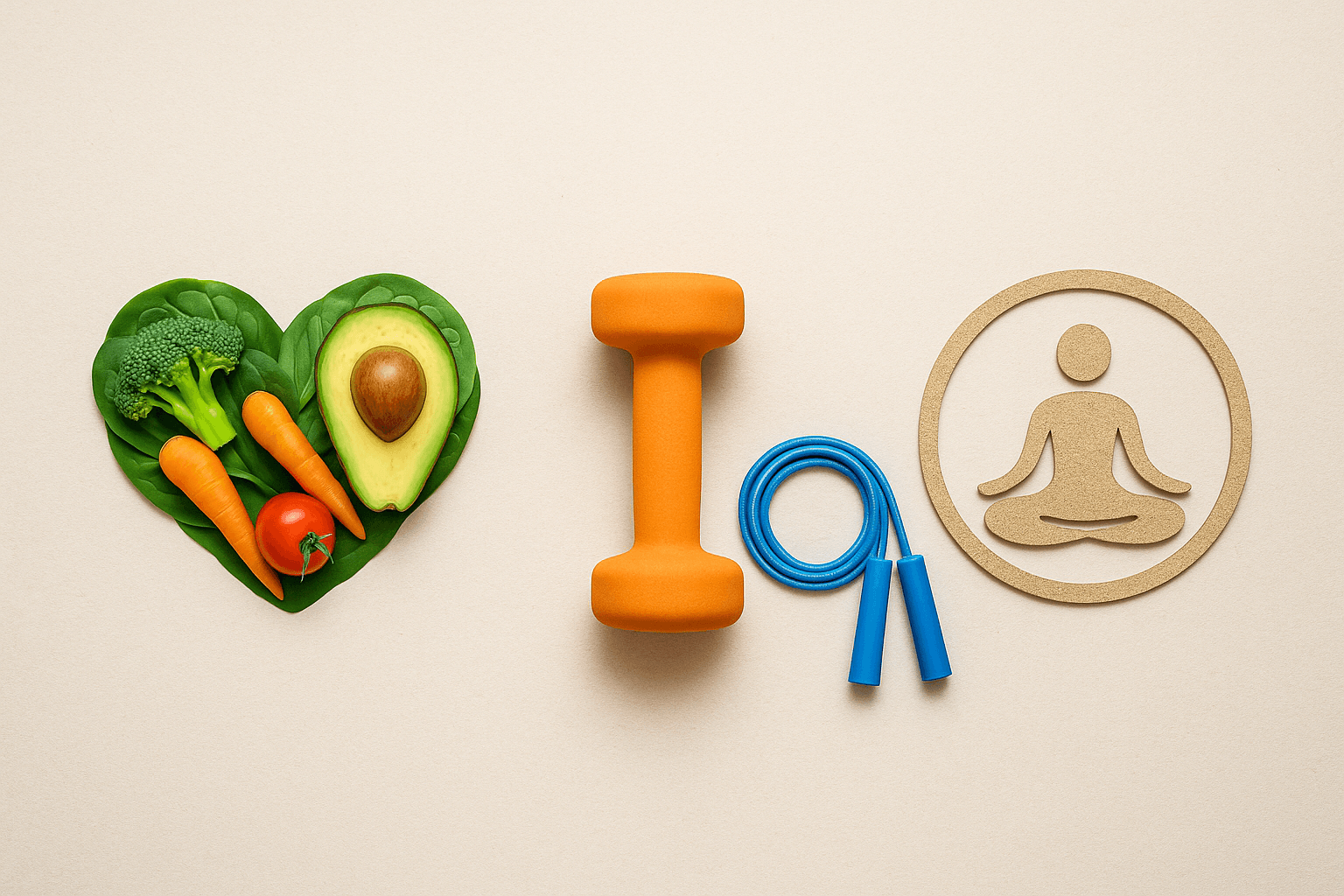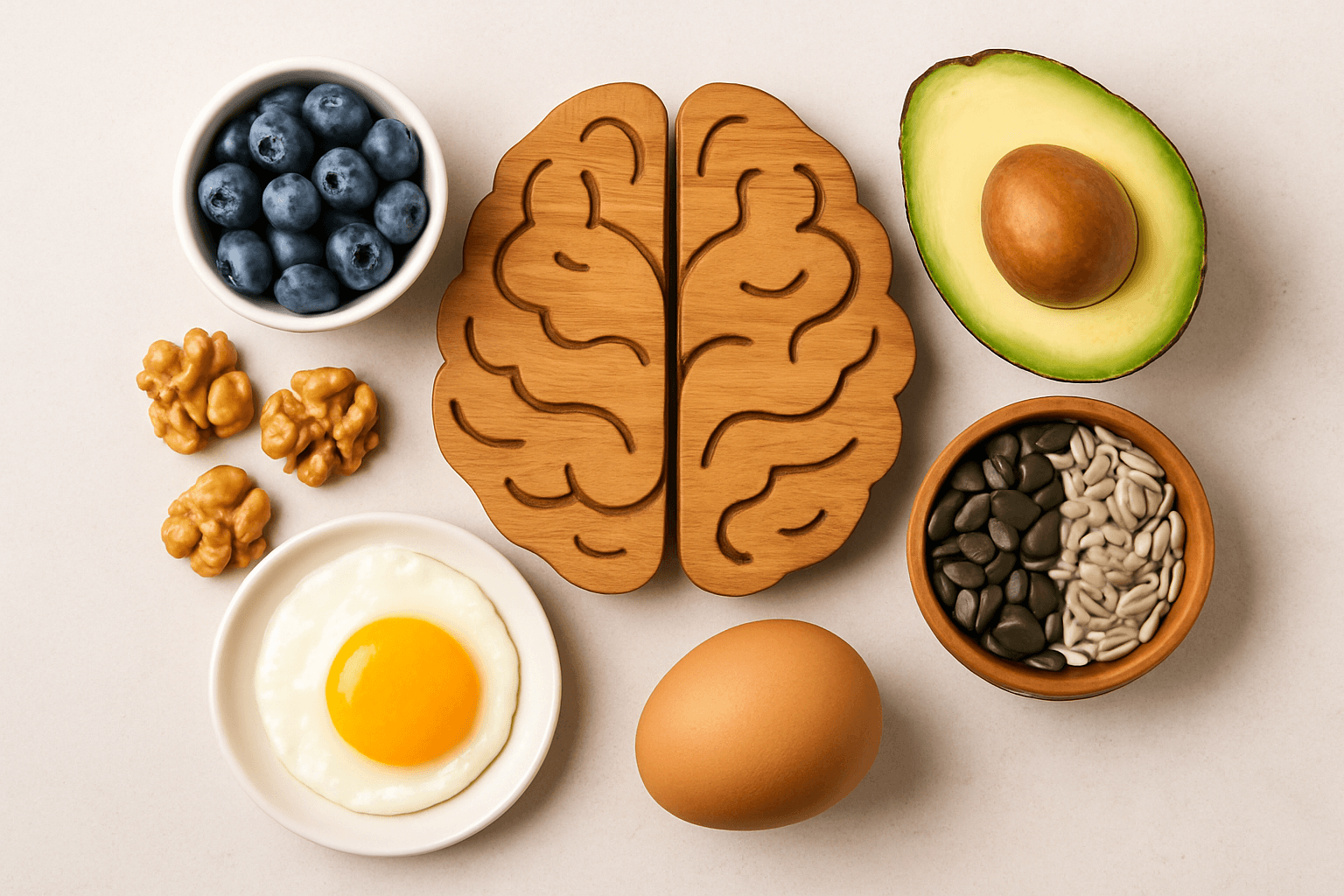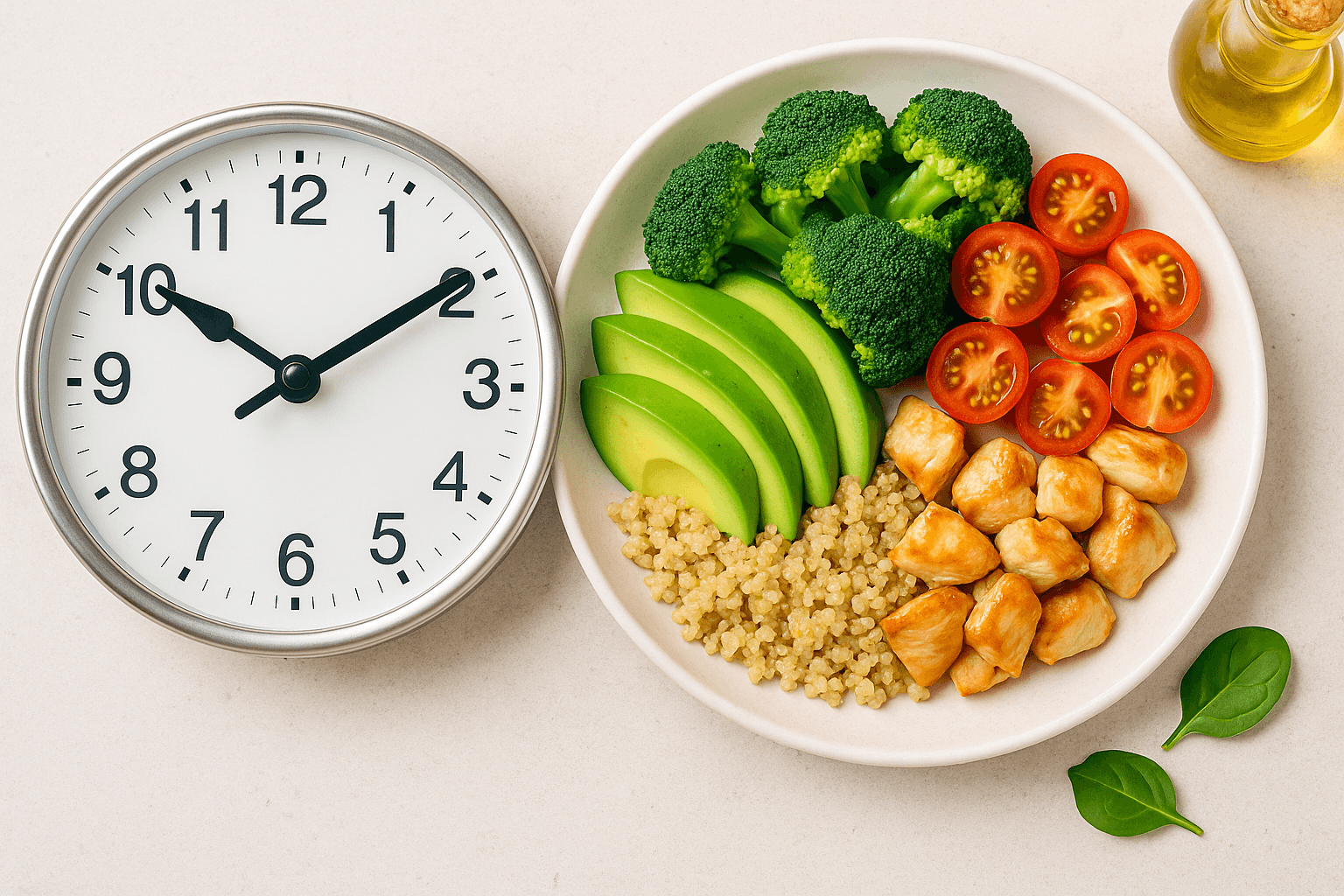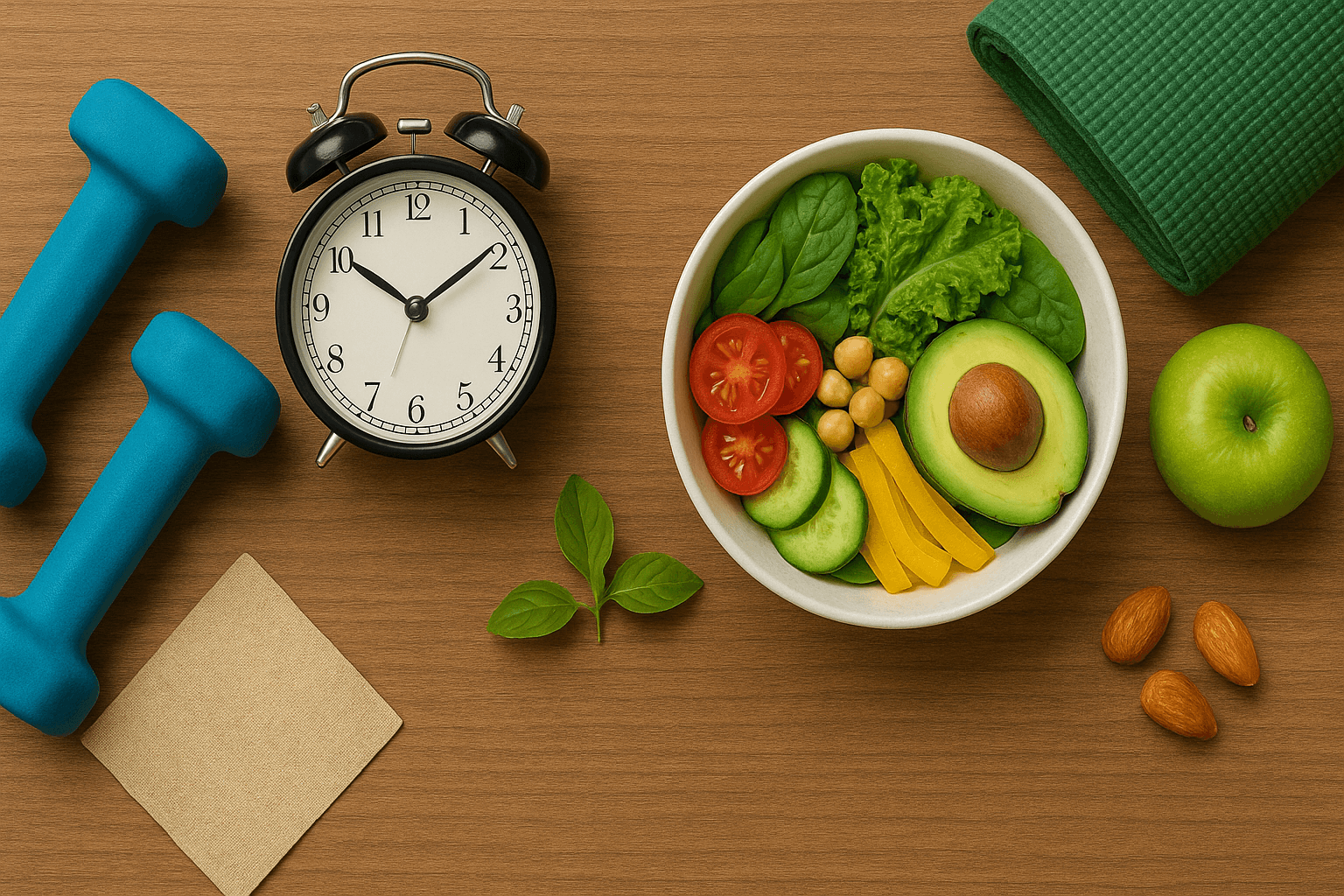EMBRACING A HEALTHY LIFESTYLE: NUTRITION, PHYSICAL ACTIVITY, AND MENTAL WELLNESS FOR LIFELONG HEALTH
Published on August 26, 2025

Healthy living is a multidimensional and holistic way of life characterised by the union and interplay of balanced nutrition, regular physical activity (PA), mental well-being and cultivating positive behaviors, which lead to improved quality of life, reduction of chronic diseases and longevity. It is so so so so so much more than a diet or an exercise regimen, though — it is about establishing fun, life-sustaining habits that serve body, mind, and soul. This article covers the science, as well as the strategies of how you can adopt and keep a healthy lifestyle in ways that can change your life.
The Foundation: Balanced Nutrition
Nutrition is the foundation for good health and supports every process in the body, from healing at the cellular level to hormone production and immune function. Eating a variety of nutrient-rich whole foods (like fresh fruits and veggies, whole grains, lean protein and healthy fats) will help you give your body all the good stuff it needs to help keep you feeling good. Not only do these nutrients power your energy, they also act as an agent to fight oxidative stress and inflammation, which is one of the main contributors to chronic disease, like heart disease, diabetes and certain cancers.
Dietary patterns such as the Mediterranean diet, which include a combination of a high intake of vegetables, nuts, and healthy fats (like olive oil), moderate protein (almost no meat), and very little processed food, have been consistently linked to improved heart health, better brain function, and longer lives. Hydration is a major component in nutrition; drinking the right amount of water helps digestion, assimilation of nutrients, temperature regulation and detoxification which helps to maintain overall metabolic well-being.
And the quality of food is just as important as quantity. By choosing whole and minimally processed foods more often over packaged and refined items, we create an optimal nutritional climate for both balance, satiety and lifelong health.
The Power of Physical Activity
Physical activity is an indispensable ally of nutrition in the preservation and promotion of good health. Staying active increases cardiovascular fitness, muscle strength and flexibility, and it contributes to a healthy body and mind, as well as reduces the risk of many chronic diseases. The World Health Organization recommends a minimum of 150 minutes per week of moderate-intensity aerobic activity or at least 75 minutes of vigorous-intensity physical activity a week but ideally, from a cardiovascular standpoint, it is best to also include muscle-strengthening activities on two or more days.
Aerobic activity like brisk walking, cycling, swimming and running increase the heart rate, ensure proper flow of blood and oxygen, and promote heart and lung health. Strength training is critical for building and maintaining muscle, which deteriorates with age and contributes to gut fat accumulation. Cachexia is a known risk factor for type 2 diabetes, and there isn’t a known marker for the condition before diagnosis.
And even beyond being beneficial to your fitness, exercise arouses the release of endorphins and neurotransmitters such as serotonin and dopamine, which not only boosts your mood, but can help quell tension and symptoms of depression. Physical activity also has favorable effects on sleep, cognitive function and response to stress, so it’s no wonder that it remains a fundamental component to overall health.
Combining Nutrition and Exercise for Health and Wellness
The combination of a healthy diet and regular physical activity provides more benefits than either alone. A balanced meal that includes good protein, carbs, and fats will nourish you well to do activities well and recover well from them. For example, after a workout, your recharge needs carbs so you can refuel glycogen stores and protein so you can rebuild muscle.
Proper hydration is the most important before, during, and after exercising, in order to sustain performance, maintain cognitive function, and avoid dehydration. If your sessions are longer or more intense, replacing sodium, potassium and magnesium is crucial to keep muscle cramps and fatigue at bay.
When meals are scheduled in consideration of when you’re staying active, you allow for more even energy provisions and better metabolism. Fueling adequately pre-exercise with a nutrient-packed meal, and refueling post-exercise will assist in recovery.
Mental and Emotional Well-Being
Mental and emotional health affects and is affected by physical health and lifestyle choices. Long-term stress, anxiety or depression can stunt motivation to form and keep to healthy habits, thus interfering with metabolic functions. Mindfulness meditation, deep breathing exercises, yoga, and other relaxation techniques can help lower stress hormone levels, build emotional resilience and improve mood.
Quality of sleep is associated with mental and physical wellbeing. Adults should get 7 to 9 hours of good quality sleep each night. Sleep disturbances can affect the hormones that control hunger and metabolism, which may result in an increased risk of obesity, insulin resistance and cardiovascular disease. Proper sleep hygiene (which includes regular sleep schedules, avoiding screens before bed, and setting up an optimal sleeping environment) is extremely important.
Social network and the act of meaningful activity have a protective role for emotional health through the maintenance of a sense of belonging and motivation. Fostering supports and participation in community-based organizations are also beneficial for mental health and adherence to healthy behaviours.
Realistic Habits for Leading a Healthy Life
Create Realistic and Measurable Goals: Develop definite, achievable goals for your nutrition and exercise to help generate momentum and confidence.
Move Throughout the Day: In addition to formal exercise time, add in more daily movement by walking, taking the stairs or taking mini-stretches, especially if you sit at a desk all day.
Planning and Preparing Meals: Set aside weekly time for food prep and organization to have healthy food available and no need for food on the run.
Develop a Support Network: Partner with family members, close friends, or like-minded wellness communities to keep each other accountable, swap stories, and stay motivated.
Keep a Tab: Keep daily journals, use mobile apps, or wearable tech like a FitBit, all can track nutrition, activity, sleep and mood that can identify patterns and potential areas for improvement.
Celebrate Achievement: Acknowledge and reward small victories to keep people motivated and reward correct behaviour.
Mindfulness and Relaxation: Utilize stress-reduction strategies and self-talk as a part of emotional resilience training.
Adopting Positive Attitude: Your guiding star is practice of gratitude and compassion to yourself, lessening expectations that life changes will have linear progression and sometimes have waves forward and backward.
Overcoming Common Barriers
From being short on time and willpower to short on resources, there’s no shortage of reasons for not maintaining a healthy lifestyle. To overcome these challenges:
Give preference to short and effective exercise like HIIT or a fast walk during your breaks.
Use free apps to send you reminders, help you monitor everything, and find healthy recipes and workouts.
Consult with professionals when necessary, be it dietitians, personal trainers, or mental health specialists.
Choose fun actions and foods that are right for you to keep on track.
If you plan out your meals and grocery needs, you will avoid unhealthy, last minute decisions.
Scientific Evidence Supporting Lifestyle Changes
Numerous studies show that combined dietary and physical activity interventions lead to more marked reductions in cardiovascular risk factors, insulin sensitivity, inflammatory markers, and sense of mental well-being than separately delivered interventions. Lifestyle medicine, an emerging specialty, advocates these holistic strategies as primary prevention and adjunct treatment for an array of chronic diseases thus potentially reducing dependence on drugs and health care expenditure.
Environmental and Social Impact
Opting for eco-friendly transport, buying local and seasonal produce and participating in community wellbeing projects are great for personal health and the planet. Sustainable lifestyles can lessen environmental footprints and strengthen social ties to build healthier communities.
After offering any short-term health improvement, the long-term advantages not to speak of quality of life.
A good, healthy lifestyle promotes physical vigor, cognitive function, emotional stability and length of life. It lowers health care costs, increases efficiency and independence, especially in the elderly. Good habits create virtuous cycles, in which better health leads to better mood and greater motivation, which in turn reinforces better habits.
Final Thoughts
It is a journey that must be a work in progress, fluid, where you need to be in it for the long haul, willing to pivot and not just be kind to your child, put yourself first and embrace daily challenges and inconsistencies in balance. When you combine healthy nutrition with regular physical activity, mental wellness, and positive social connection, you create the right environment for health and happiness throughout your life.
Small things done consistently make a meaningful difference over time, creating radical change in your health and your life. The best lifestyle is ultimately the one that best suits your beliefs and preferences and is also sustainable — one that you truly enjoy.








